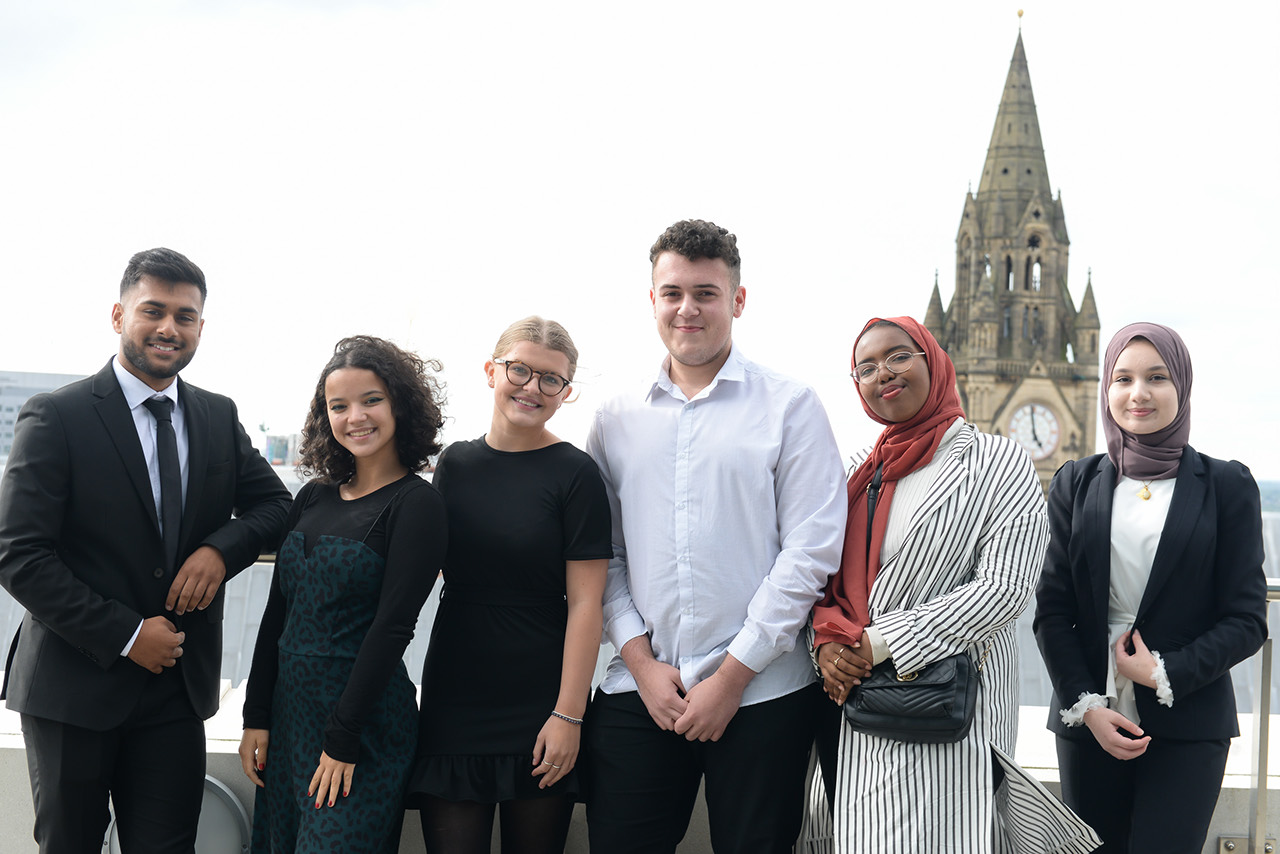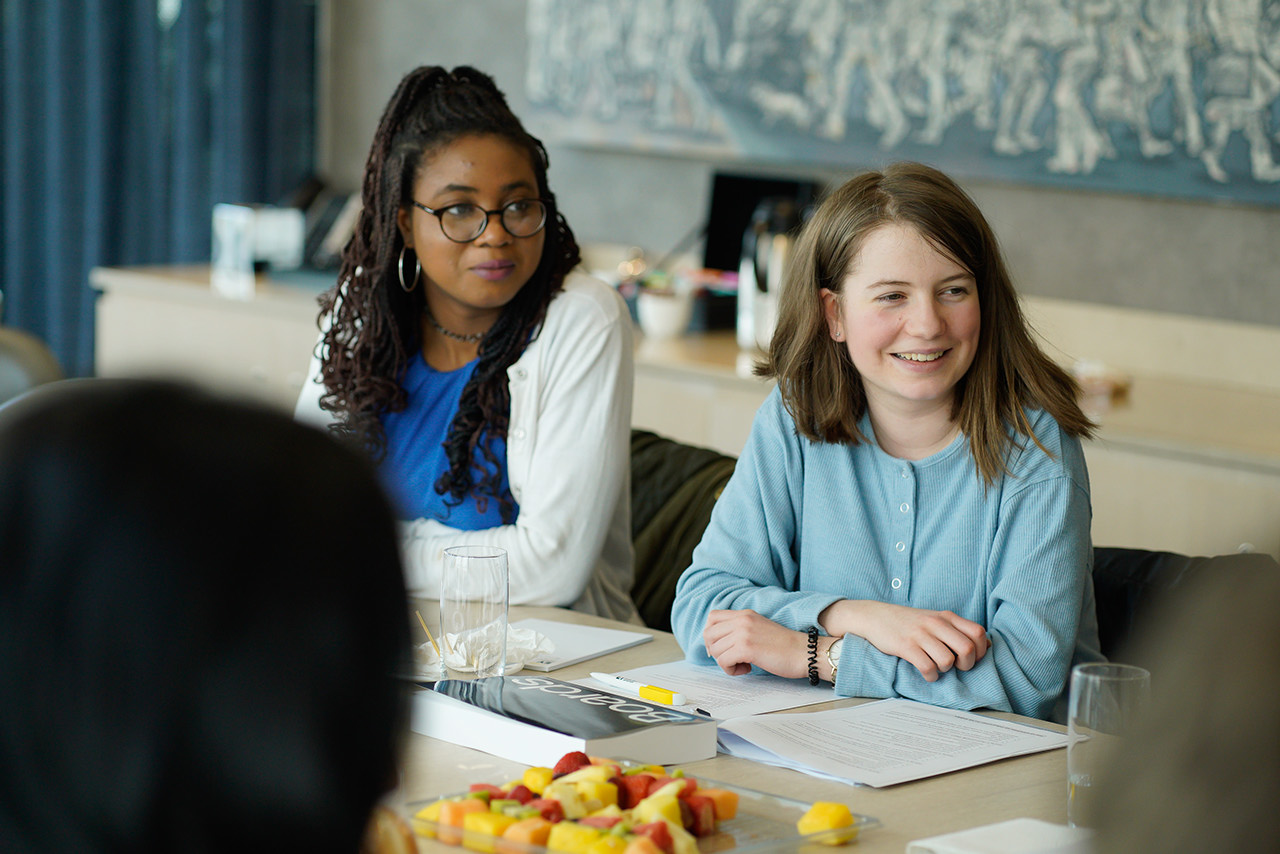The EY Foundation is a charitable company registered in England and Wales and Scotland with registered charity number 1157154 and SC045076. It is also a member firm of Ernst & Young Global Limited

I was welcomed by a wonderful trainer, Jess, who shared her experiences with the press and highlighted some of her key moments. To kickstart the training, she started off with the types of media opportunities, what they were and why they might want to talk to us, and what those media outlets would be looking for.
Of course, my ears stood at attention during the part about national television - who wouldn't want to share their life with millions of people? Don't judge me! But regional television is key too. It's an opportunity to state some positives, to talk about what good has been done in a local community and share that with a wider group. Who wouldn't like to wake up in the morning to some good news?
Do's and Don'ts
She then started to talk to us about the do’s and don’ts when on camera, especially when you're being broadcasted live. Some were very clear, like don't answer your phone (come on...you're on live TV, what are you doing?) She also mentioned stuff that I never really thought about like wearing black or striped clothes doesn't look best on camera so one of my colleagues asked what colours would you advise for us to wear and Jess responded, noting that its highly common almost female reporters to wear red or anything bright and men are usually in suits or casual clothes (obviously avoiding black).
[The objective was] to learn how to be confident on camera and tell my story as my story without comprising the integrity.
Mock Interviews
The main part of the training was practical. We had to do mock interviews in front of everyone, I was nervous but I knew I wanted to take part. There were two parts of the interviews; first of all, one which was related to the EY Foundation, in case you’re not aware EY Foundation is an independent charity which supports young people who come from low-income backgrounds to get paid work experience, employability skills training and guidance in their career prospects.
EYF offers a vast amount of programmes and events to cater for different needs, ages and interests having supported over 18,000 young people and social enterprises, a number which continues to grow. Being on one of their programmes in 2020 (the Smart Futures programme), I've experienced first-hand the impact their programmes offer and the opportunities they allow.
Back to the first part of the training, we were to discuss findings from the lastest EYF impact reports and diversity in the charity sector.
I learnt that one man's story can move a nation and through telling your story you give a chance for others to heal and find someone to relate to, which can make someone at home feel less alone because at the end of the day we are in this together.
Keep your focus
During this session, we learnt how to keep to the story and how we must be in control of the narrative as presenters may go off a tangent and the points you wanted to get across may not get heard because you’re busy being driven by irrelevant questions. Tips to combat this included: to always have a question in mind that you're going to answer and lead with that and focus around such parameters. In our case, we would say: "at EYF we are doing this/that to close the diversity gap" etc; essentially: stay on topic and you'll be fine.
Tell your story
The second half of the interview was personally the hardest part where we were interviewed to provide a case study of your own story. It gave us a chance to talk about our own experiences and how they have shaped our lives. This can be very tough to talk about, so make sure you are ready and already have an idea of what you'd like to talk about. Don't let presenters take control of your story and emphasise the point you are making but, most importantly, if you feel uncomfortable about a subject just tell the presenter and they most likely will understand. Never feel pressured to say what you don’t want to say or leave opportunities for your words to be twisted; remember, it's your story not theirs.
The interview was timed; for the first half I was within the time limit but the second half I doubled the time as it was hard to talk about and I wasn’t used to doing so. Rest assured, I’ll keep practising. If you are given a media opportunity it’s most likely to be last minute so make sure you say YES even if it's a tight deadline as they might not mind delaying the segment etc, but the more NOs you give the less likely they are to be calling you back for future opportunities so if you're keen, seize any opportunity with both hands.
Using the training
For those who are wondering why we attended the training, it’s part of our roles as Youth Advisory Board members for the EYF. Also, in the future, I'd love to be a public figure and speaker, so training like this is very handy. I also aspire to being an artist, so when I'm interviewed these learnings will help me. I'm also looking into further training, like the neuro-linguistic programming and the ABC(D) method, which you might find helpful in advancing your skills.


